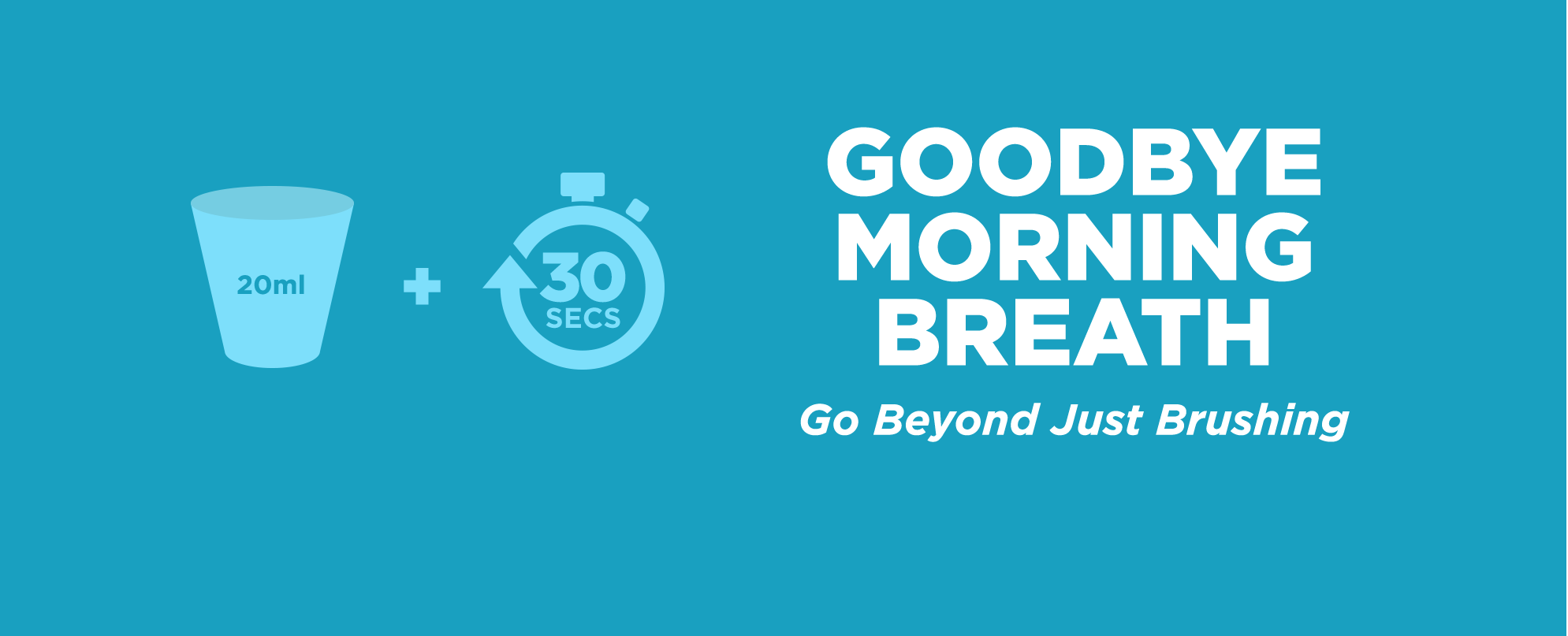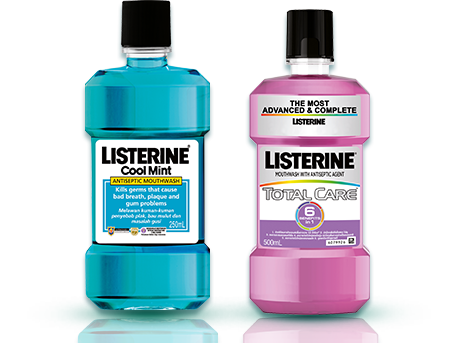Fresh Breath: Frequently Asked Questions
Yes, persistent bad breath may be a byproduct of other medical conditions. Common ailments like acid reflux and heartburn could leave a bad taste in your mouth. In other cases, bacteria and mucus buildup from a sinus infection could be what’s causing the issue. Slightly fruity breath that isn’t wholly pleasant or offensive is a telltale sign of diabetes, while a strong, ammonia scent has been linked to kidney disease.*
Periodontal diseases like gum problems can cause bad breath because of the presence of excess bacteria in the mouth. And dry mouth, which causes a decrease in saliva, leaves your mouth unable to naturally flush bacteria and food particles from your teeth and gums before they break down and start to decay.
If you’re worried your bad breath might be a sign of a bigger issue, or if you’re just unable to tame it yourself by brushing, flossing and rinsing, talk to your dentist.
When it comes to habits that can cause bad breath, few rank higher than tobacco use. Just the act of smoking alone, not to mention the associated health risks, is enough to leave your mouth tasting—and smelling—like an ashtray. Having a high-sugar diet doesn’t help, either; the natural bacteria in your mouth will feast on the excess sugars and redecorate your teeth and gums with bacteria buildup. Carbohydrate-cutting diets can often double your chances of bad breath as your body increases its production of ammonia to try and metabolize food. People who fast or skip meals regularly run a different kind of risk: chewing helps stimulate saliva, which helps prevent your mouth from getting dry and smelling stale. When you stop for long periods of time, your breath can begin to smell. Dry mouth also affects people who regularly breathe through their mouths, putting them in the unenviable position of having bad breath. Finally, people who are overstressed can wind up having unpleasant breath.
Yes and no. Since bad breath is often caused by dry mouth, chewing sugar-free gum can be a great way to get those saliva glands going. Not only will it help to flush out bacteria, saliva also helps usher unwanted food particles from your mouth before they can break down in your mouth.
Gums, candies and mints that are loaded with sugar, however, are not going to help. They may mask the odor, but they’ll do little to actually kill the bacteria that are causing your breath to smell. That’s because the sugar sticks to your teeth and gums where it can both break down to cause additional odor and increase plaque buildup. More plaque equals even more bad breath.*
Your best bet is to brush, floss and rinse twice daily. This will ensure your mouth is optimally clean.
Unless you’re rinsing with a garlic and blue cheese-flavored variety, no mouthwash will cause your breath to stink. In fact, studies show LISTERINE® Mouthwash may even help get saliva flowing faster, thereby preventing dry mouth (which is linked to bad breath). For best results use LISTERINE® mouthwash twice daily, as directed, for 24-hour protection from bacteria.

Why Rinse
BRUSHING ONLYCLEANS 25% OFYOUR MOUTH*
*http://www.livestrong.com/article/101756-causes-infection-tonsils/

